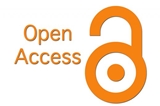Global Survey of Revitalization Efforts: Latin American region
DOI:
https://doi.org/10.24201/clecm.v9i0.231Keywords:
revitalization, endangered languages, amerindian languages, linguistic diversity, linguistic rights, language revitalizationAbstract
The XXI century has seen a significant increase in efforts to revitalize languages worldwide. The Global Survey of Revitalization Efforts documented 245 efforts for 208 languages. The Survey followed a mixed methods approach and included 30 questions. It was administered online in 7 languages and yielded some 40 000 bits of data. This study builds upon the global results reported in Pérez Báez et al. (2019) to provide frequency counts and analysis focused on two Latin American regions: Mexico, Central America and the Caribbean as one, and South America. The results show that revitalization efforts have increased in the XXI century, suggesting that many efforts are recent and in need of support. The results include descriptions by revitalization practitioners of the support needed such as capacity building, institutional support, internal community support as well as support and respect from outside the language community. The data suggest that while revitalization efforts are responding to situations of advanced language shift, there is a notable focus in South America to engage in language maintenance to protect the extant vitality of languages. Based on the Survey, revitalization efforts seem heavily focused on language teaching, perhaps over intergenerational transmission of a language. This study further pairs the qualitative data shared by participants with the United Nations 2030 Agenda for Sustainable Development to show that linguistic diversity is integral to human development and human rights.
Downloads
References
Baldwin, Daryl & Costa, David & Troy, Douglas. 2016. Myaamiaataweenki eekincikoonihkiinki eeyoonki aapisaataweenki: A Miami language digital tool for language reclamation. Language Documentation 10. 394–410.
Baldwin, D. L.; Hinton, L. & Pérez Báez, G. 2018. The breath of life workshops and institutes. En Hinton, Leanne & Huss, Leena & Roche, Gerald. The Routledge handbook of language revitalization. 188–196. Nueva York: Routledge. https://doi.org/10.4324/9781315561271 DOI: https://doi.org/10.4324/9781315561271-24
Belew, Anna & Simpson, Sean. 2018. The status of the world’s endangered languages. En Rehg, Kenneth & Campbell, Lyle (eds.). The Oxford handbook of endangered languages. Oxford: Oxford University Press. https://doi.org/10.1093/oxfordhb/9780190610029.013.4 DOI: https://doi.org/10.1093/oxfordhb/9780190610029.013.4
Fishman, Joshua A. 1966a. Hungarian language maintenance in the United States. Bloomington: Indiana University.
Fishman, Joshua A. 1966b. Language loyalty in the United States: The maintenance and perpetuation of non-English mother tongues by American ethnic and religious groups. Berlín: Mouton.
Fishman, Joshua A. 1991. Reversing language shift: Theoretical and empirical foundations of assistance to threatened languages. Reino Unido: Multilingual Matters.
Hammarström, Harald; Forkel, Robert; Haspelmath, Martin & Bank, Sebastian. 2021. Glottolog 4.4. Max Planck Institute for Evolutionary Anthropology. https://doi.org/10.5281/zenodo.4761960
Hinton, Leanne; Huss, Leena & Roche, Gerald. 2018. Language revitalization as a growing field of study and practice. En The Routledge handbook of language revitalization (pp. xxi–xxx). Nueva York: Routledge. DOI: https://doi.org/10.4324/9781315561271
Jacob, Michelle M.; Sabzalian, Leilani; Johnson, Stephany R.; Jansen, Joana & Morse Gayle S. N. 2019. “We need to make action NOW, to help keep the language alive”: Navigating tensions of engaging indigenous educational values in university education. American Journal of Community Psychology 64(1–2). 126–136. https://doi.org/10.1002/ajcp.12374 DOI: https://doi.org/10.1002/ajcp.12374
Harbert, Wayne; McConnell-Ginet, Sally; Miller, Amanda & Whitman, John (eds.). 2008. Language and poverty. Multilingual Matters. Berlín: De Gruyter Mouton. https://www.degruyter.com/document/doi/10.21832/9781847691200/html DOI: https://doi.org/10.21832/9781847691200
Lee, Nala & Way, John. 2016. Assessing levels of endangerment in the Catalogue of Endangered Languages (ELCat) using the Language Endangerment Index (LEI). Language in Society 1(1–22). https://doi.org/10.1017/S0047404515000962. DOI: https://doi.org/10.1017/S0047404515000962
Leonard, Wesley Y. 2011. Challenging “extinction” through modern Miami language practices. American Indian Culture and Research Journal 35(2). 135–160. https://doi.org/10.17953/aicr.35.2.f3r173r46m261844 DOI: https://doi.org/10.17953/aicr.35.2.f3r173r46m261844
Organización de Naciones Unidas. Agenda 2030 para el Desarrollo sostenible. https://www.un.org/sustainabledevelopment/es/2015/09/la-asamblea-general-adopta-la-agenda-2030-para-el-desarrollo-sostenible/ consultado el 19 de mayo de 2021.
Pérez Báez, Gabriela & Moseley, Christopher. En prensa. Endangerment. En UNESCO Report on languages. UNESCO.
Pérez Báez, Gabriela & Rogers, Chris & Rosés Labrada, José E. 2016. Introduction. En Language documentation and revitalization in Latin American contexts, 1–28. Berlín, Boston: De Gruyter Mouton. https://www.degruyter.com/document/doi/10.1515/9783110428902-001/html DOI: https://doi.org/10.1515/9783110428902-001
Pérez Báez, Gabriela; Vogel, Rachel & Okura, Eve. 2018. Comparative analysis in language revitalization practices: Addressing the challenge. En Oxford Handbook of endangered languages, 466–489. Oxford: Oxford University Press. DOI: https://doi.org/10.1093/oxfordhb/9780190610029.013.1
Pérez Báez, Gabriela; Vogel, Rachel & Patolo, Uia. 2019. Global survey of revitalization efforts: A mixed methods approach to understanding language revitalization practices. Language Documentation and Conservation 13. 446–513. http://hdl.handle.net/10125/24871
Thieberger, Nick (ed.). 1995. Paper and talk: A manual for reconstituting materials in Australian indigenous languages from historical sources. Australia: Canberra Aboriginal Studies Press.
Whalen, Douglas H.; Moss, Margaret & Baldwin, Daryl. 2016. Healing through language: Positive physical health effects of indigenous language use. F1000Research 5. 852. https://doi.org/10.12688/f1000research.8656.1 DOI: https://doi.org/10.12688/f1000research.8656.1
W3Techs - World Wide Web Technology Surveys. https://w3techs.com/technologies/overview/content_language consultado el 20 de mayo de 2021.
Published
How to Cite
-
Abstract1101
-
PDF (Español)322
-
XML (Español)52
-
EPUB (Español)37
-
Kindle (Español)105
-
MP3 (Español)14
Issue
Section
License
Copyright (c) 2022 Gabriela Pérez Báez, Rachel Vogel, Uia J. Patolo

This work is licensed under a Creative Commons Attribution-NonCommercial-NoDerivatives 4.0 International License.
Authors retain copyright of their work and are free to disseminate it, make copies for any use, and/or deposit in any repository or archive of their choice, but they grant Cuadernos de Lingüística de El Colegio de México the right to publish the work for the first time. Authors agree to acknowledge Cuadernos de Lingüística de El Colegio de México as the site of original publication of their article / note / review through proper citation.
Articles appearing in Cuadernos de Lingüística de El Colegio de México are made available to readers under a Attribution-NonCommercial-NoDerivatives 4.0 International.









